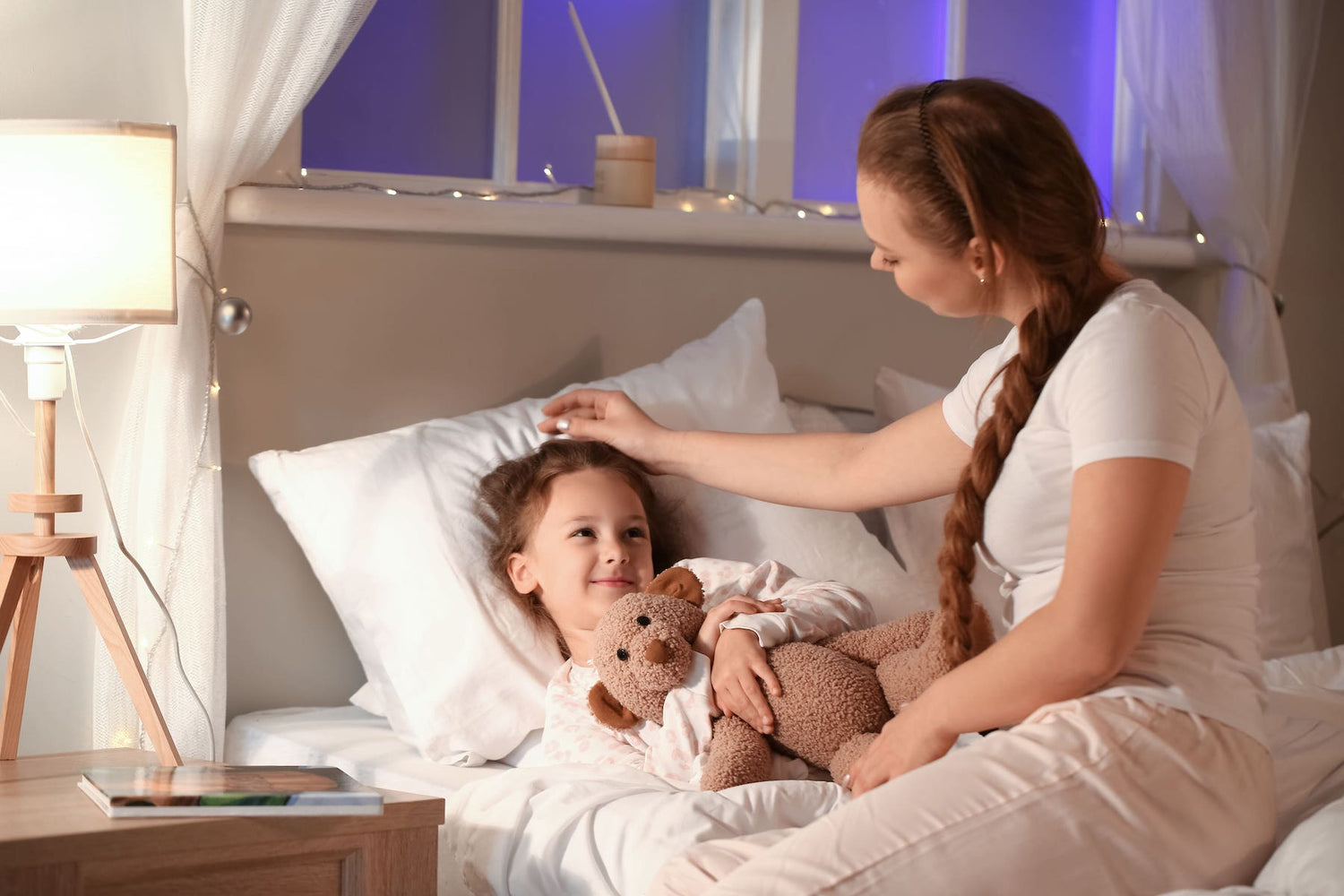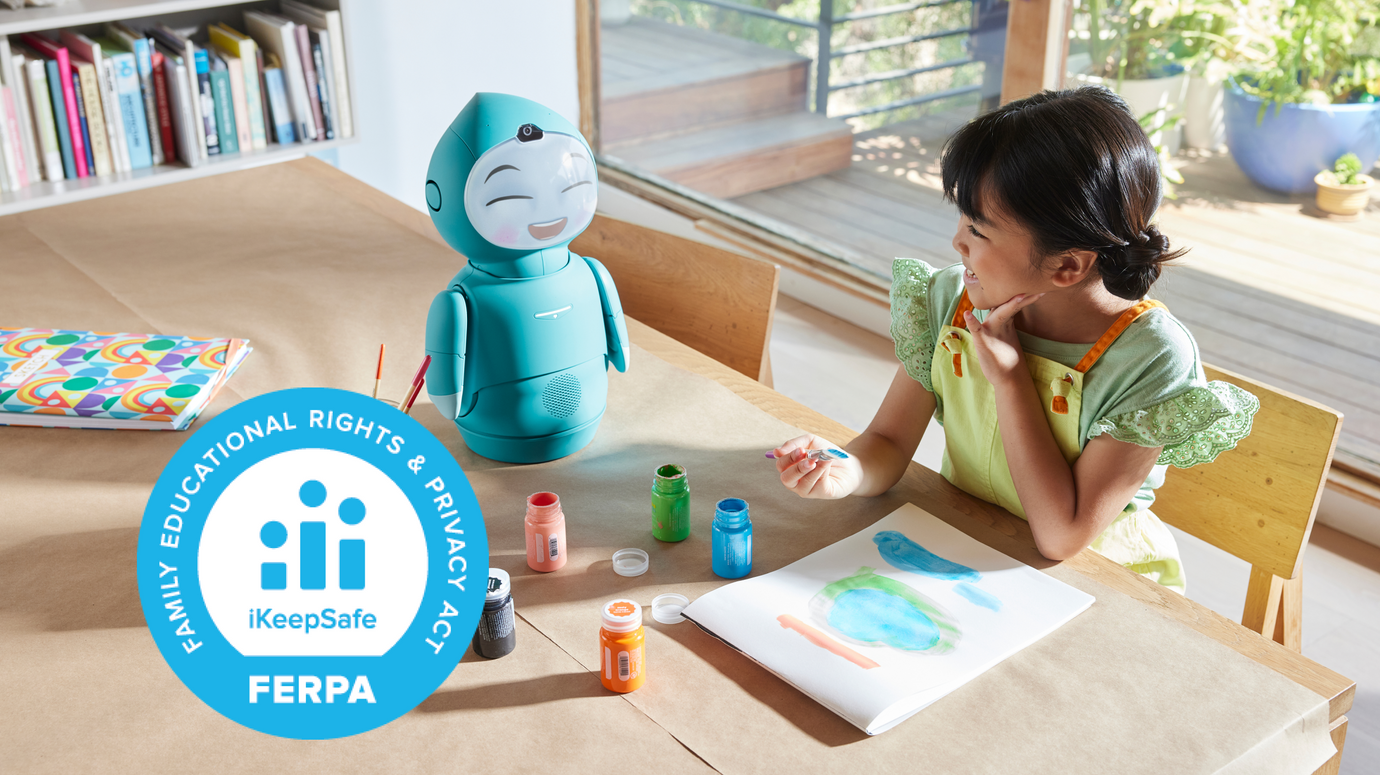Tips to Help Kid's Develop Good Sleep Habits

What Getting Good zzz’s Does for Kids’ Mental Health
They look so peacefully sweet when they sleep. Finally calm from all the hustle and bustle of the day. And you get a much needed rest from all that energy too! But that quiet tranquility is deceiving. Although it may not seem like it, there’s actually an incredible amount of crucially important work happening while they snooze.
What's Happening While They're Sleeping?
From babies to teens, there’s lots going on in the body and brain while kids are sleeping. During sleep the brain has the opportunity to sort through and consolidate information. It also works on creating new synapses and prunes back unnecessary neural connections so that energy is focused where it’s needed. It’s also a time when different kinds of memories are strengthened and stored. All of these are important processes that help babies, kids, and teens learn and grow.
Sleep is also a time for the brain to adjust the levels of various chemicals. For example, has your kid ever complained about growing pains when they lay down to go to sleep? Some kids will think of anything to avoid going to sleep, but this one may not be an excuse. While kids are snoozing, their body makes more human growth hormone, which not only helps the body grow (look at that femur getting longer!), but also repairs muscles, tissues, and bone. Sleep plays an important role both during rapid growth spurts as well as during more drawn out growth through puberty and beyond.
And sleep is also an important time for the immune system to gain strength and do its thing. That’s why adequate sleep can help kids guard against the cold and flu and can help guard against other long term health problems in adults). Sleep (as well as other long term health problems in adults).
How Does Sleep Affect Mental Health?
A lack of sleep can result in all sorts of mood or behavior problems. Sometimes the symptoms of inadequate sleep can even end up being mistaken for more severe disorders. And for kids who already struggle with mental health issues, sleep deprivation can make their symptoms even worse. Specific mental health related consequences of not getting enough sleep include seeing more intense emotions; defiance or noncompliance; symptoms of depression or anxiety; hyperactivity; attention span. And, kids may have less motivation; mental alertness, capacity for learning and reasoning; and ability to make decision, solve problems, or use good judgment.
Sleep is actually so crucial to ideal mental functioning that, according to Stanford Sleep Medicine Center expert Rafael Pelayo, “There is pretty much no mental health disorder that doesn’t have a sleep component to it,” What’s more is that poor concentration or school performance, tantrums, irritability, and aggressive behavior can also affect how others respond to us, which in turn can easily affect kids’ mental health.
So How Much Do They Need?
It’s hard to make big generalizations for how much sleep any individual kid needs. Some elementary school aged kids do okay on 9 hours of sleep, others need 11 or more. Appropriate bedtimes and hours of sleep can also vary across cultures. In some cultures, caregivers put their kids to bed by 7:00pm and in others, kids are routinely still up past 10:00pm. But, caregivers can use these guidelines from the U.S. Centers for Disease Control and Prevention as a starting point.
In a 24-Hour Period
- Infants under 1 year need 12-16 hours
- Children 1-2 years old need 11-14 hours
- Children 3-5 years old need 10-13 hours
- Children 6-12 years old need 9-12 hours
- Teenagers 13-18 years old need 8-10 hours
Signs Your Kid is Not Getting Enough Sleep
Though you can use the above guidelines to give a general sleep goal, it may take some trial and error to find the ideal amount of sleep for your kid. It can be tricky because kids who aren’t getting enough sleep may not actually seem sleepy. Instead, they might struggle with hyperactivity, aggression, being able to pay attention, or other behavior problems. In fact, the best way to assess if your kid is getting enough sleep is to pay attention to clues in their behavior and sleep patterns.
Some questions to ask yourself include: Are they having a hard time waking up in the morning? Do they sleep in for hours on the weekend? Are they irritable and impulsive? Are they having trouble paying attention or concentrating? If you find yourself answering yes to these questions, lack of sleep may be the culprit! Consider rearranging their sleeping schedule, giving your kid time to adjust, and then see if that changes anything.
Tips for Setting Healthy Sleep Habits
If bedtime is a struggle or your kid is clearly not getting the sleep they need, there are quite a few adjustments you can make to help your kids sleep better. Some ideas might work better than others for your family, so see which ones fit your needs and your kids best.
Lead by Example
- Model good sleep habits. Make it clear that your family values the importance of good quality sleep. Make sure everyone in the family is intentional about getting enough snooze time.
Create a Schedule That Works for Your Kid
- Find a reasonable bedtime for kids that balances their physiological sleep needs, your family’s needs, and everyone’s schedules. Stick to that time as consistently as possible so that your kid’s body gets into a predictable rhythm.
- If your kid naps, make sure the nap isn’t happening too close to bedtime as that nap may keep them from being tired for your ideal bedtime.
- If you see that changing things up over the weekend throws everything off, try keeping that regular weekday bedtime up, even on weekends.
Set the Mood
- Help wind things down for the day by making the time leading up to going to sleep as relaxing as possible. Keep the lighting low and engage in quiet, low energy activities.
- Keeping the bedroom dark, cool, and relatively quiet will help set the stage for comfortable sleep.
- Create positive associations with bedtime by doing something special with them for a bedtime routine. For example, read a book while you cuddle or have a nice light chat about your day.
- Avoid caffeine, especially in the late afternoon and evening. Don’t forget caffeine from hidden sources like coffee flavored yogurt, soda, or even chocolate.
Limit Overstimulation Around Sleep
- Be careful with screens around bedtime. There are quite a few reasons to limit the use of screens for at least one hour before bedtime. The light from the screen affects the body’s natural sleep-wake rhythm. Using screens can be stimulating, which is not where you want to be when trying to wind down and go to sleep. And even remotely scary content in screen-based activities can make kids anxious or too scared to fall asleep.
- Remove over stimulating items and activities from the sleep area. Take out anything with a screen, as well as other super exciting toys or items that could be stimulating.
Ask Questions
- Finally, if your kid is having trouble going to sleep, try to uncover the underlying cause. Do they feel anxious about something and can’t stop thinking about it? Have they experienced too much stress during the day? Are they actually overtired? Has bedtime become so much of a struggle that your kid has negative associations with it? Adjust your game plan once you discover what specific obstacles are getting in the way.







